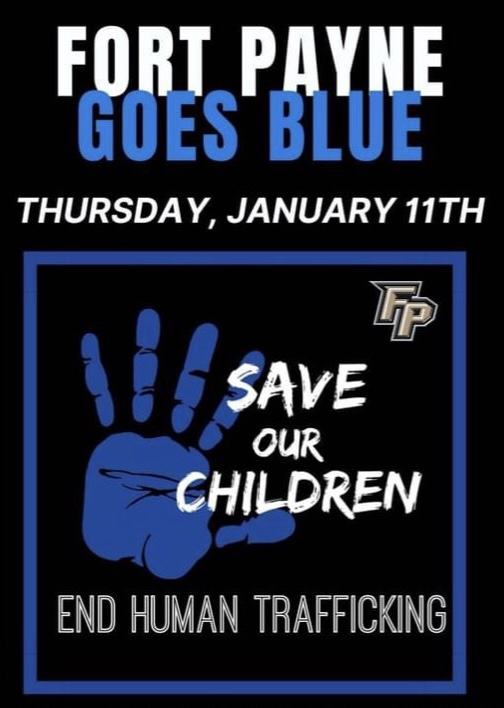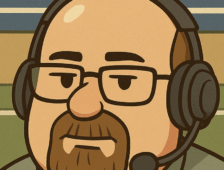Staff Reports news@times-journal.com
The City of Fort Payne "Goes Blue” Thursday, to call attention to the issue of human trafficking.
People are asked to wear t-shirts designed and sold for the event, or other blue attire as a part of a nationwide campaign during National Human Trafficking Awareness Month.
Plans include a “Blackout Human Trafficking” event at Fort Payne’s basketball game Thursday – when everyone attending the game is asked to wear black for that same reason: To raise awareness of a problem many people may not see as a local issue.
It is a problem locally, as it is everywhere, Family Services of North Alabama Executive Director Sherrie Hiett tells people at any speaking engagement or event she participates in.
As Hiett said at one such event, she was at a conference to learn about human trafficking when she realized the agency had been seeing victims of it, even though the victims had not reported it, and the agency had not identified it, as such.
The U.S. Department of Homeland Security answers the question “What is human trafficking?” this way:
“Human trafficking involves the use of force, fraud, or coercion to obtain some type of labor or commercial sex act. Every year, millions of men, women, and children are trafficked worldwide – including right here in the United States. It can happen in any community and victims can be any age, race, gender, or nationality. Traffickers might use the following methods to lure victims into trafficking situations:
• Violence
• Manipulation
• False promises of well-paying jobs

• Romantic relationships
“Language barriers, fear of their traffickers, and/or fear of law enforcement frequently keep victims from seeking help, making human trafficking a hidden crime.
“Traffickers look for people who are easy targets for a variety of reasons, including:
• Psychological or emotional vulnerability
• Economic hardship
• Lack of a social safety net
• Natural disasters
• Political instability”
Hiett chairs the Northeast Alabama Human Trafficking Task Force, which acts to combat human trafficking through awareness and education, and to empower communities to respond to and prevent trafficking.





